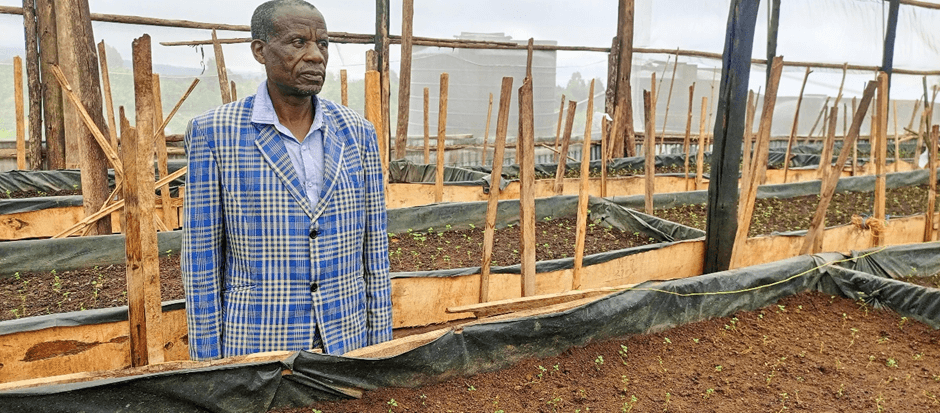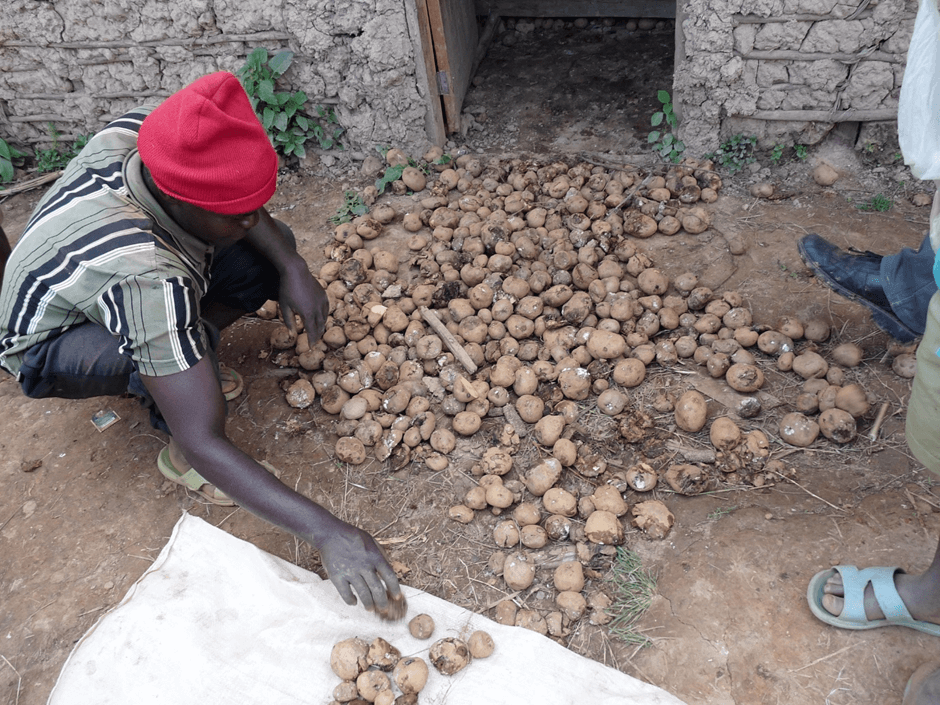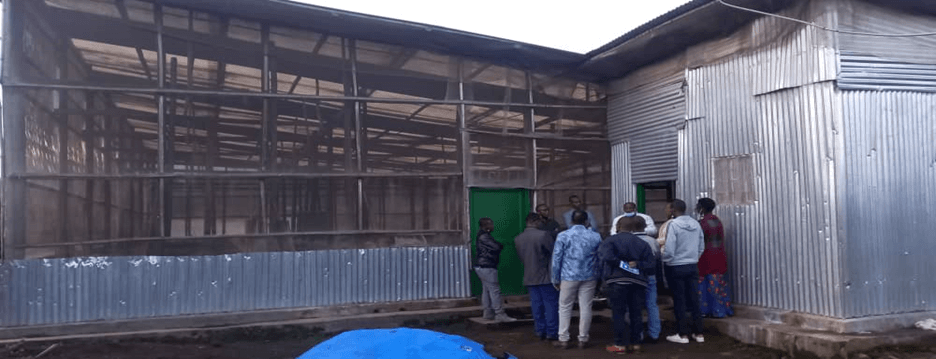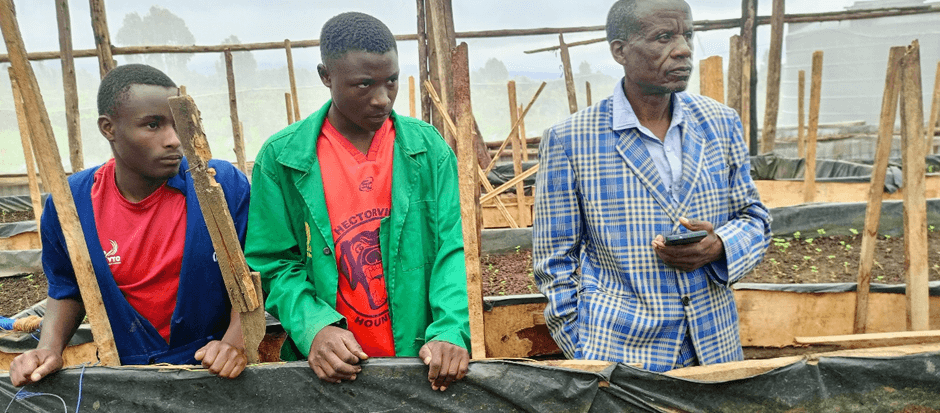Rwandan Farmer Thrives with Improved Potato Seed Production
By Martin MUGENGA (SPF), Theophile NDACYAYISENGA (RAB) and Joshua OKONYA (ASARECA)
Mr. Isaac Nzabarinda is a 62-year-old lifelong farmer and a married man with nine adult children in Rugi village, Musanze, Rwanda. He shares his journey of renewed success in producing disease-free potato seed. Growing up on a farm, he actively participated in capacity-building initiatives, particularly those offered by agronomists from the nearby research station of the Rwanda Agriculture and Animal Resources Development Board (RAB).
Mr. Nzabarinda, along with his cooperative members, received training on good agricultural practices for seed potato production, pest and disease management, the economics of seed potato production, and the strict requirements set by the Rwanda Inspectorate, Competition and Consumer Protection Authority (RICA) of the Rwanda Standards Board for certified potato seed. He was confident in his ability to comply after gaining these skills and receiving technical support from Seed Potato Fund Joint Ventures Ltd (SPF).

However, COVID-19 affected production, leading to a decline. Fortunately, in 2022, Mr. Nzabarinda was invited to a stakeholder workshop in Musanze. The workshop aimed to identify promising potato seed multipliers willing to co-invest in infrastructure and potato plantlets to support the “Strengthening agricultural knowledge and the innovation ecosystem for inclusive rural transformation and livelihoods in Eastern Africa (AIRTEA)” project.
Addressing a Critical Need
RAB reports indicated an over 50% deficit in clean potato seed production in Musanze and surrounding potato-producing districts in Northern Rwanda. This resulted in low on-farm potato yields due to most farmers using farm-saved seed for more than two years, accumulating pests and diseases.

The AIRTEA Project Steps in
During the workshop in 2022, Mr. Nzabarinda received valuable support. RAB offered clean potato plantlets at half-price (RWF 115) and Early Generation Seed Potato (EGSP) – Imbuto guaranteed the purchase of his mini-tubers at the prevailing market price (100 RWF per tuber). Additionally, recognizing his initial high investment and lack of access to loans, the AIRTEA project agreed to share the cost of repairing his screenhouse.

Renewed Success
With this comprehensive support, Mr. Nzabarinda revitalized his potato seed business. He planted 7,000 plantlets in 30 boxes, generating approximately 8,300,000 mini-tubers, earning him close to RWF 8.3 million.

Previously, his yield was hampered by a worn-out screen net, insufficient light due to a black roof, and unsuitable planting basins. The AIRTEA project addressed these issues by providing new nets, transparent roofing, and wooden boxes with plastic bags for optimal plantlet growth. Mr. Nzabarinda is one of the 18 screen house owners in Northern Rwanda that have been supported through the AIRTEA project to scale up the production of quality seed potato to meet the demand for certified seed.

Beyond Production
In 2023, Mr. Nzabarinda’s profits exceeded RWF 3 million. This financial success transformed his business. He secured a business loan of RWF 18 million from the Bank of Kigali to construct a second, modern screen house with irrigation systems. “Due to the increased demand for labour, I have employed three full-time staff (an accountant, a security guard and an agronomist) to support me oversee the production process and to also ensure compliance with the seed certification requirements”, he stated. My screen house has also attracted media attention and I now receive students from Agriculture Technical Vocational Education and Training (ATVET) schools who come to undertake short-term internships in screen house management and production of horticultural crops.
Furthermore, he improved his commercial potato storage facility, generating additional income by charging other farmers and seed multipliers RWF 10,000 for seed storage per month per bag. A portion of his earnings also supported his son’s education, including purchasing a new laptop computer for his upcoming graduation from Universite Libre de Kigali (ULK). Mr. Nzanarinda has become a resource and an example of success in his community.

Project Background
The “Promoting technologies and innovations for improving access to quality potato seeds by smallholder farmers through strengthening potato seed systems and multi-stakeholder collaboration in Rwanda” project is one of 11 third-party projects under the AIRTEA initiative (2021-2025). Funded by the European Union (EU) through the ACP Innovation Fund, it operates under the Organization of African, Caribbean, and Pacific States (OACPS).
This project, implemented in Rwanda by a consortium of institutions including SPF Joint Ventures, RAB, Institut d’Enséignement Supérieur de Ruhengeri (INES), University, and Early Generation Seed Potato Ltd (EGSP-Imbuto), is coordinated by the Forum for Agricultural Research in Africa (FARA), the Association for Strengthening Agricultural Research in Eastern and Central Africa (ASARECA), and the East African Farmers Federation (EAFF).
The project operates on the “triple helix” model, fostering collaboration between universities, private companies, and government institutions within the Rwandan agricultural sector, ultimately propelling economic development and transformation for smallholder potato farmers like Mr. Nzabarinda.
